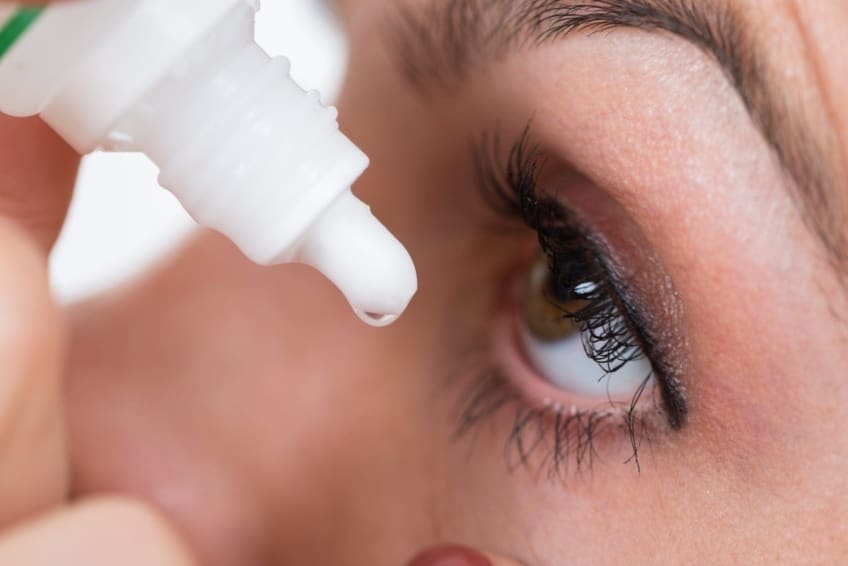
What is Sjögren’s syndrome?
Sjögren’s (pronounced “show-grins”) syndrome is a disease that causes dry mouth and dry eyes. It can also cause dryness in other places that need moisture. This includes the nose, throat, or skin. It is an autoimmune disease. This means that your immune system attacks your body by mistake. In Sjogren’s syndrome, the immune system attacks the glands that make tears and saliva (spit). The damage keeps the glands from working properly.
Symptoms of Sjögren’s syndrome
The most common symptom of Sjögren’s syndrome is severe dryness in the eyes and mouth. This lasts for at least 3 months and isn’t caused by any medicines you are taking.
- Dry eyes: Your eyes may feel gritty and itchy. You could have blurry vision or be sensitive to bright light.
- Dry mouth: Your mouth could feel like it’s full of cotton. You may have trouble swallowing, eating dry foods, or even speaking.
In more severe cases of Sjögren’s syndrome, other parts of your body may be affected by the condition. These could include:
- skin
- joints
- lungs
- kidneys
- blood vessels
- digestive organs
- nerves
Symptoms in these areas include:
- Dry skin.
- Skin rashes.
- Chronic dry cough.
- Joint and muscle pain.
- Fatigue or feeling very tired.
- Vaginal dryness.
- Numbness and tingling in the arms and legs.
What causes Sjögren’s syndrome?
Doctors don’t know exactly what causes Sjögren’s syndrome. It usually affects women over age 40. It is 9 times more common in women than in men. Sjögren’s syndrome may develop in people who have other autoimmune diseases, such as rheumatoid arthritis, Hashimoto’s disease, or lupus. Research shows that genetic factors could make a person more likely to develop the disease.
Can Sjögren’s syndrome be prevented or avoided?
There is nothing you can do to prevent or avoid getting Sjögren’s syndrome.
Sjögren’s syndrome treatment
There is no cure for Sjögren’s syndrome. Treatment involves easing the symptoms that the disease causes. Over-the-counter (OTC) or prescription eye drops can help with dry eyes. In more severe cases, the tear ducts that drain tears from your eyes can be plugged or blocked. To treat dry mouth, you can drink water, chew gum, or use saliva substitutes. If necessary, your doctor can prescribe medicines that will help your body make more tears and saliva. These treatments can help relieve some of the dryness. But usually it doesn’t go away completely.
If you have joint pain associated with Sjögren’s syndrome, your doctor may recommend taking an OTC nonsteroidal anti-inflammatory drug (NSAID) such as ibuprofen (two brand names: Advil, Motrin). This medicine can help relieve the pain and swelling in your joints.
Depending on your symptoms and whether you have organ damage from Sjögren’s syndrome, your doctor may prescribe other medicines and treatments.
Living with Sjögren’s syndrome
Currently, there is not a cure for Sjögren’s syndrome. However, in most cases, treatment can help relieve your symptoms and prevent complications. The majority of people with Sjögren’s syndrome are healthy and don’t have serious complications from the disease.
People with the disease do have more risk of having some problems because of the long-term decrease in tears and saliva. These include infections in or around the eyes and dental problems such as cavities. Make sure you are taking good care of your teeth and see your dentist regularly. If you notice any pain or redness in your eyes, get it looked at right away. These could be signs of an infection.
Rare complications of Sjögren’s syndrome include lung problems, liver or kidney problems, skin rashes, weakness and numbness, or lymphoma.
Questions to ask your doctor
- How did I get Sjögren’s syndrome?
- How can I relieve the symptoms of Sjögren’s syndrome?
- What treatment will be best for me?
- Is there any medicine I can take to easy my symptoms?
- Do I need to see a specialist?
- Is there a cure for Sjögren’s syndrome?
![]()
Copyright © American Academy of Family Physicians
This information provides a general overview and may not apply to everyone. Talk to your family doctor to find out if this information applies to you and to get more information on this subject.









